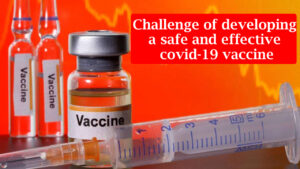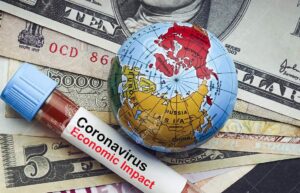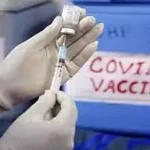Corona disease has brought in challenges, at individual level and society at large. More than ever before, clinical trial has generated a lot of interest during the times of Covid-19. All over the world, people are waiting to get a vaccine that can cure this dreaded disease or prevent it.


Covid-19 is the greatest threat to human being around the world in the recent time. World Health Organization has given its official name as, the disease: coronavirus disease (Covid-19) and it causes by the virus – severe acute respiratory syndrome coronavirus (SARS-CoV-2). This deadly virus has been originated in December, 2019 and has outbreak in city, Wuhan.
Coronavirus is known to cause infections in animals but when infects a human it usually causes mild respiratory infections. Coronavirus can cause respiratory tract infections in humans, that can be mild like any flu infection but some coronavirus can cause deadly infections and it is very dangerous. In 2002–03, there was an outbreak of novel coronavirus called SARS (Severe Acute Respiratory Syndrome) related coronavirus in China and Hong Kong, which was then spread to other countries also. Since then, no further SARS reported from any regions.
In 2012-16, a new virus, called MERS (Middle East Respiratory Syndrome) virus spread in countries like Cyprus, the Asian part of Turkey, Syria, Lebanon, Israel, the West Bank and Gaza, Jordan, Iraq, Iran, the countries of the Arabian peninsula, Egypt and Libya. China claims that this Covid-19 has been originated from a bat species. However, it has not been proved scientifically yet. The virus is carried by aerosol droplets in the air, released from any infected person and enters the human body through the respiratory system (nose to lungs).
After entering the lungs, this virus tries to invade the tissue cells of the lungs. This virus can only enter the lungs cell with the help of a protein called Angiotensin converting enzyme 2 (ACE2). The ACE2 protein has a receptor and the coronavirus has also spike protein (S-protein) on its body. This virus attaches itself to the ACE2 protein by docking its S-protein onto the ACE2 receptor. Another protein called serine protease (TMPRSS2) helps the virus to attach itself to the ACE2 protein and activates the docking process. After attaching itself to ACE2 protein, it transfers its mRNA to the host cells (lungs cells).
Immunity
The concept of herd immunity is to try to create an extremely large group of people who have immunity against an infectious agent. This means either vaccinating or allowing people to get infected and recover, so they have developed memory against the infecting agent and can produce antibodies when encountering the infectious agent again. This halts the pandemic from spreading, as it will not find susceptible host to infect. This constitutes the concept of herd immunity.
Research for vaccine


Drug discovery needs a long time research involving pre-clinical, clinical studies. The studies need testing of potential molecules, which must show promising results in pre-clinical studies, in healthy volunteers. At this junction of unprecedented human health crisis, it is neither practicable nor advisable to begin research in conventional way to find a cure. Exploring the approved medicines for this new indication and compounds which have already shown promising results in pre-clinical studies but not pursued further are perhaps the best bet. These, if found effective would receive early regulatory approval on emergency use authorization.
Leaders across the globe pledged to speed up work on tests, drugs, vaccines against Covid-19 and to share them around the globe. Global research is being carried out to discover vaccine to combat the virus. World Health Organization director general says all new vaccines, diagnostics and treatments against the coronavirus must be made equally available to everyone across the globe.
Oxford University in collaboration with AstraZeneca is working on potential Covid vaccine and it is started human trials with a vaccine they developed. The UK govt has funded the vaccine project with 20 mn pounds to Oxford University and another 22 mn pounds to a second vaccine project at Imperial College, London last month.
Challenges in health care sector
Challenges and the uncertainty have been further accentuated due to Covid pandemic and the subsequent lockdown. Most private healthcare facilities activated their epidemic plans that required huge investments in making facilities prepared for infection control and prevention, creating infrastructure for isolation and Covid treatment, as well as equipping them with appropriate medical supplies and additional healthcare workforce. Revenues of hospitals have seen in a sharp dip owing to stalled medical tourism and elective procedures. The OPDs had also been discontinued following the advisory released by the governments across the country.
According to various studies released on economic impact of the pandemic on healthcare sector, virus outbreak had resulted in around 70-80 per cent drop in footfall, test volumes, and about 50-70 per cent drop in revenues at the end of March 2020. The study also revealed that the sector is expected to witness short-term operating losses to the tune of Rs. 14,000-24,000 crore for a quarter.
Need sops for healthcare


The industry had also proposed solutions of providing government grant for loss of business due to the pandemic or bringing in moratorium on all working capital, principal, interest payments on loans and overdrafts, bringing in liquidity and allowing for business continuity. Zero-rating of GST has been a long-standing request from the sector, which can bring maximum relief at a time like this. Government may consider zero-rating of healthcare services, which will not only ensure that the credit chain is intact but also ensure that the input taxes are not loaded into the cost of healthcare services.
It is a little worrying to contemplate the effect of Covid on the healthcare sector, especially on drug discovery and production. Although India manufactures one third of the global supply of medicines, over 80 percent of the raw materials needed for the drug are imported from China. This gives our neighbour a virtual monopoly over supply and pricing to the point that there are no domestic producers for most medicines in India. The total import of drug intermediates and bulk drugs exceeds Rs. 25,000 crore and China accounts for over 67 percent of it.
Huge public health crisis in India?
India has also significantly increased the import of antibiotics from China in the recent years, and the trade is currently worth billions of dollars. If China decides to pull the plug on supply, it will lead to a huge public health crisis in India. Drug companies claim that low-cost imports have forced a lot of manufacturers to shut up shop. A number of them have given up manufacturing ingredients for other drug makers and have started manufacturing complex formulations on their own. These are then exported to developed markets in first world countries.
This pandemic presents us with the opportunity to turn things around with government support. With the coronavirus outbreak restricting imports from China, the government has taken steps to ensure that there is a sufficient supply of medicines by limiting exports of 26 APIs and medicines, which account for 10 per cent of our pharmaceutical exports. Over the years, India has witnessed tiny ripples – for instance, when several Chinese units faced disruption over pollution concerns and when API contamination issues arose, but none put a chink in the armor as much as the current pandemic.
Problems have ranged from the risk of a shortage of some critical APIs to an average price increase of 20 per cent, with some antibiotics, anti-inflammatory, and antipyretic drugs witnessing a jump of 190 per cent. The pandemic lockdown, not just in China but also in other countries such as the US, Italy, and Singapore, which serve as alternative sources for API imports, left the Indian pharma industry in a tight spot. The problem can be pinned down to two primary reasons: dependency on an external source, even when several domestic companies have reported capacity utilization of less than 50 per cent, and shortcomings of the supply chain models of the Indian pharmaceutical sector.
Indian pharma industry
Indian govt responded to the crisis by launching new schemes for promotion of API parks and Production Linked Incentives (PLI) scheme with the promise of investing $1.3 billion over the next eight years. This will reinvigorate home-grown manufacturing businesses and their infrastructure, reduce operational cost, expedite the administrative processes, and create the much-needed cluster and ecosystem model, which can serve as the genesis for an innovation-driven pharma-economy in India. Due to low barriers for entry and low capital requirements, the number of pharma firms in India expanded dramatically from about 2,250 in 1970 to over 30,000 in 2019.
As many of these companies focus on producing generic drugs, with possibly hundreds of companies producing the same drug, the industry faces fierce competition and high volumes, low margins, overcapacity, and declining prices. Majority of Indian pharma manufacturers are small by global standards with annual revenues of less than Rs. 20 crore. About 80 per cent of them are engaged in contract manufacturing for larger companies. The largest about 250 companies account for nearly 70 per cent of domestic market with top 10 controlling about 40 per cent of turnover of Rs. 1.4 lakh crore. There is a need for up skilling all contract manufacturers by shifting them to formulations and towards the entire tabletting and packaging end-to-end process so that these manufacturers ensure strict compliance to quality and process protocols, and allow larger manufacturers to focus on more complex formulations.


The following challenges to be solved as lagging sales of patented drugs by multinationals in their home markets across the globe, especially in the US and Europe, with declining R&D budgets and rising costs leading multinationals to turn to Indian for contract research service, co-marketing alliances, pre-clinical, clinical trials for new drugs. India has proven capabilities in medical skills. Due to this, the need for continuous up skilling in the contract research sector is crucial to reduce the trial periods using innovation.
Focus on R&D initiatives
New drug discovery have been declined. Most R&D initiatives are unsuccessful in bringing a new product to market; the total amount of investment per successful drug is very large. A decline in productivity has been evident since the middle of 1990, as increased R&D investment has coincided with a decline in the number of new molecules approved for marketing. Pharma innovation has been incremental, rather than radical, leading to many innovations having little any added therapeutic value over existing treatments. There is a critical need to upskill research employees to focus on trying to discover, prevent and cure the root causes of ailments rather than only treating them.
While pharma sector engages in many forms of innovation, the vital is discovery and development of new chemical and biopharma products that become new therapies. New drug development takes about minimum 8 years from discovery to approval, and is prohibitively expensive, with recent studies revealed costing at around $ 1 billion per new molecule. Increasing competition in global markets, especially the emergence of country like China has been a major threat to Indian pharma. Quality assurance department of companies acts as a crucial link between enabling the sales force to adhere to the guidelines of regulatory authorities and maintaining high standards.
At the same time, they need to ensure that they find the right markets for their products. The export-focused Indian pharma needs to comply with stringent quality standards and process documentation. Impacted by warning letters and import recalls due to regulatory issues, Indian pharma companies need to continuously upskill their quality assurance workforce. Increasing skill efficiency of workforce usually results hike in quantity, quality and output. A well trained team of workforce gives enhanced performance in concerned field.


Dr Sanjay Agrawal
Leading Pharmaceutical Consultant and Inventor
Editor-in Chief of IJM Today
6/146, Malviya Nagar ,
Jaipur, Rajasthan-302017
Phone : 0141 2550814











